Learning Modules for Integrated Landscape Management
Welcome to our learning modules on integrated landscape management (ILM)!
Who are these modules for?
The materials on this page are designed for experienced facilitators who use sustainable landscape approaches, whether you work for a supporting organization or directly with stakeholders within a landscape. Our modules are designed for facilitators who are comfortable delivering sessions on new topics using just a facilitation guide.
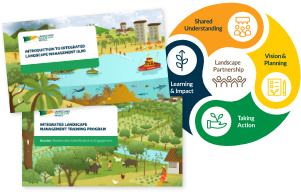
In-person and online sessions
In-person sessions focus on bringing together stakeholders from the same landscape to create actionable outcomes—like developing a shared vision or stakeholder map. These sessions are hands-on, participatory, and highly engaging.
Online sessions are designed for knowledge-sharing and capacity strengthening and may be used among colleagues from the same landscape or leaders from different landscapes. These sessions don’t aim to produce tangible outputs but foster learning and understanding.
What’s coming next?
We are working on providing additional support to help less-experienced facilitators confidently deliver these sessions in the future.
How to Use 1000L’s ILM Learning Modules
Each module includes adaptable facilitation guides and visuals that you can personalize to fit your needs. We encourage you to incorporate local stories and examples to make the sessions more relevant. All but one of the modules are tested globally, drawing on insights from the ILM Practical Guide and diverse landscapes. For guidance on how to use and adapt these materials, watch this video!
MODULE 1
Introduction to Integrated Landscape Management
This foundational module introduces the Integrated Landscape Management (ILM) framework. It includes the five process elements, four benefits, three zones, and the 20+ year generational time scale. It paves the way for other modules that further guide participants through the ILM process.
This session introduces the ILM framework and allows participants to apply it in their own landscapes. It focuses on sharing experiences, finding existing examples, and developing a shared language around sustainable landscape management practices. It includes participatory and engaging activities for large and small groups.
Duration: full day (6-8 hours)
Delivery format: in-person
Participants: 8-30 diverse stakeholders from the same landscape: from farmers to governmental officials, non-governmental organizations, business owners, and more.
This session introduces the basic concepts of the ILM framework. It focuses on knowledge-sharing without applying it in the context of the participants.
Duration: Two two-hour sessions
Delivery format: Online via Zoom
Participants: 8-12 landscape leaders from different landscapes or colleague facilitators who are familiar with engaging in online meetings.
MODULE 2
Stakeholder Mapping, Analysis, and Engagement
Stakeholder Mapping and Analysis is the study of the human ecosystem within a landscape. It begins with identifying key stakeholders and analyzing their relationships with one another and the landscape. The next step is to develop an engagement strategy. As part of the “Landscape Partnership” element of the ILM process, the goal is to help participants build strong, collaborative partnerships within the landscape. Please note there is a difference in the content offered between these two modules. While the in-person version focuses only on stakeholder mapping and analysis, the online version also explores stakeholder engagement.
Duration: full day (6-8 hours)
Delivery format: in-person
Participants: 8-30 diverse stakeholders from the same landscape: from farmers to governmental officials, non-governmental organizations, business owners, and more.
Duration: two hours
Delivery format: online via Zoom
Participants: 8-12 landscape leaders from different landscapes or colleague facilitators who are familiar with engaging in online meetings
MODULE 3
Landscape Partnerships: Cross-sectoral and multi-stakeholder governance
Landscape Partnerships (LPs), also known as multi-stakeholder partnerships (MSPs), bring diverse stakeholders together to agree on and work toward a shared strategy for building resilient and sustainable landscapes. This module introduces participants to the concept of landscape partnerships, covering the roles and functions of different organizational structures and exploring various approaches to participatory landscape governance. As part of the “Landscape Partnership” element of the ILM process, the goal is to help participants build strong, collaborative partnerships within the landscape.
In this session, participants explore the importance of landscape partnerships in governance. It covers the steps for creating a partnership agreement, discusses potential organizational structures, and highlights key roles partners can play in managing the landscape.
Duration: two hours
Delivery format: Online via Zoom
Participants: 8-12 landscape leaders from different landscapes or colleague facilitators who are familiar with engaging in online meetings.
MODULE 4
Shared Vision
A shared vision outlines the long-term aspirations for the landscape, spanning generations. It establishes common ground for all stakeholders, fosters future collaboration, and guides strategy development and action planning for the landscape. As part of the ‘Vision and Planning’ element of the ILM process, the goal of this session is to create a shared vision for landscape partnerships.
In this workshop, participants co-create the first draft of a shared vision for their landscape. Through participatory activities for large and small groups, they exchange experiences, knowledge and find common ground.
Duration: full day (6-8 hours)
Delivery format: in-person
Participants: 8-30 diverse stakeholders from the same landscape: from farmers to governmental officials, non-governmental organizations, business owners, and more.
Duration: two hours
Delivery format: Online via Zoom
Participants: 8-12 landscape leaders from different landscapes or colleague facilitators who are familiar with engaging in online meetings
MODULE 5
Landscape Action Plans
A landscape Action plan is crucial for turning broad landscape visions and strategic goals into practical activities and tangible results. As part of the ‘ Taking Action’ element of the ILM framework, this module introduces the processes and tools needed for landscape action planning.
In this session, participants identify what landscape action plans are and why they are important for initiating action guided by a shared vision and strategy. Participants explore tools for developing their Action Plans and see examples from existing landscapes in Latin America.
Duration: two hours
Delivery format: Online via Zoom
Participants: 8-12 landscape leaders from different landscapes or colleague facilitators who are familiar with engaging in online meetings
MODULE 6
Landscape Narratives
Landscape narratives are the collective and diverse stories, histories, and interpretations that define and give meaning to a specific landscape. This module, part of the ‘Taking Action’ element of the ILM framework, helps participants appreciate the importance of sharing their landscape narratives with internal and external audiences. It also explores various storytelling formats and mediums suitable for their specific context.
DISCLAIMER: This module has not yet been tested with landscape stakeholders. If you are interested in using/testing this module, we would love to hear from you! Your experience will allow us to make this module better for everybody. Please contact our team at: 1000Landscapes@ecoagriculture.org
This session introduces landscape narratives as powerful tools for effective communication. Participants explore the relevance of these narratives, discover the different formats they can take, and learn how to collaboratively create them to express a landscape’s identity and engage with both local and external stakeholders.
Duration: full day (6-8 hours)
Delivery format: in-person
Participants: 8-12 diverse stakeholders from the same landscape partnership who are working together to develop their communication strategy.
MODULE 7
Advocacy in Landscapes
Advocacy is the act of supporting or promoting a cause, policy, or idea to influence decision-makers and bring about change. This is highly relevant in a landscape context. This module equips participants with a fundamental yet practical understanding of advocacy and how it can be leveraged to support their long-term sustainability goals within their landscape.
In this session, participants will explore how advocacy can be a key tool for advancing the landscape’s strategic goals. The workshop includes group activities that bring together diverse stakeholders to collaborate on creating an advocacy action plan, helping to break down siloed thinking.
Duration: two days
Delivery format: in-person
Participants: 8-25 diverse stakeholders from the same landscape partnership who want to develop an advocacy plan together. They can be farmers, governmental officials, non-governmental organizations, business owners, and more.
MODULE 8
Diversity, Equity, and Inclusion in Landscapes
This module covers the concepts of diversity, equity, and inclusion, explaining their relevance to landscape management and how they can be applied to landscape initiatives. It explores what these concepts mean in the context of a landscape and provides guidance on analyzing and promoting them effectively.
This session provides participants with foundational concepts of diversity, equity, and inclusion (DEI) and relates these concepts to their specific landscape realities. It also offers optional guidance on establishing a DEI committee to ensure that inclusivity remains a key element in all landscape partnership strategies, plans, and activities. The session emphasizes sharing experiences and developing a common language for sustainable landscape management practices, featuring interactive activities suitable for large and small groups.
Duration: two days
Delivery format: in person
Participants: 8-25 diverse stakeholders from the same landscape, from farmers to governmental officials, non-governmental organizations, business owners, and more.
This session introduces the concepts of diversity, equity, inclusion, and justice (DEIJ) as a cross-cutting part of ILM. It helps participants identify, analyze, and evaluate the conditions of DEIJ in their landscape and provides tools to develop a strategy for practicing DEIJ in their landscape.
Duration: two hours
Delivery format: Online via Zoom
Participants: 8-12 landscape leaders from different landscapes or colleague facilitators who are familiar with engaging in online meetings
MODULE 9
Facilitation for ILM
The success of ILM sessions largely depends on the skills and abilities of the facilitator(s) delivering them. This module is designed for landscape facilitators who want to strengthen their facilitation skills and improve their participatory training methods.
DISCLAIMER: For best results, this training should only be facilitated by Master Trainers who have participated in the training and have four or more years of coaching, training, and facilitation experience. For more information, please contact our team at 1000Landscapes@ecoagriculture.org
This training equips participants with an extensive toolbox of training and facilitation skills to implement in-person sessions.
Duration: five days
Delivery format: in-person
Participants: 12-25 trainers, landscape facilitators, or landscape weavers who already deliver and contextualize face-to-face sessions and want to strengthen their didactic abilities and interpersonal skills.
We Welcome Your Feedback
Your feedback is invaluable for improving these resources! Please share your experiences, stories, questions, and ideas with us through the provided feedback forms. We can all benefit from and contribute to global learning by collaborating and sharing knowledge.
If you have any questions about how to use these resources, please do not hesitate to contact the 1000L Capacity Strengthening design team at 1000Landscapes@ecoagriculture.org.
Acknowledgments
The 1000L Capacity Strengthening design team gratefully acknowledges our partner organizations, along with the individuals from these organizations whose invaluable contributions we have appreciated:
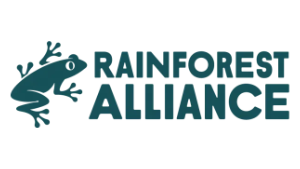
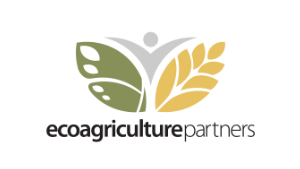
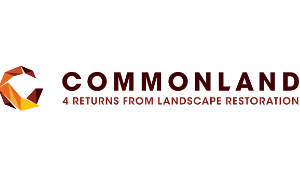
Simon Moolenaar
Daniel Uosukainen
Patricia Bon
Bemmy Granados
Zina Burgers
Max Levy
Laura Eugene
Lisa Markslag
Alyssa Gartenberg
We would like to acknowledge all of the additional individuals and partner organizations who contributed to developing and/or allowed us to test and improve modules, including:
Roos van der Deijl
Lily Hamilton
Pilar Valbuena
Laura Giraldo Restrepo
Marlon Hernandez
John Mario Rodriguez
Claudia Rojas
Natalia Ruiz Guevara
Gustavo Mentlik
Saurin Nanavati
Joky Francois
Elizabeth Njenga
Susan Kinyua
Douglas Omoke
Alex Nene
René Pieneman
Marla Naidoo
John Recha
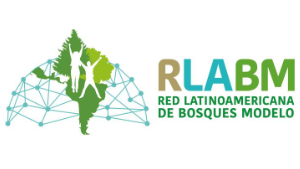
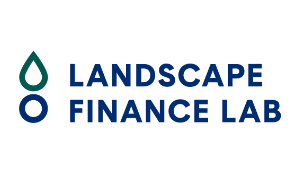
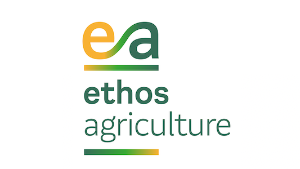

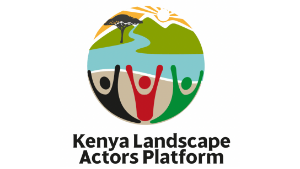
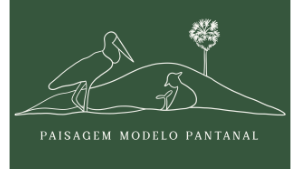
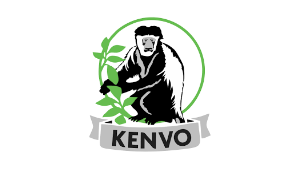
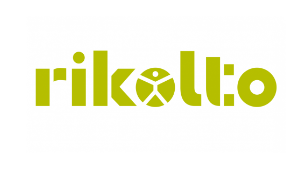
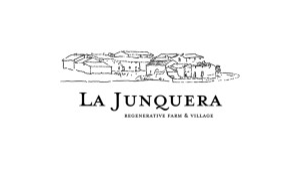
We’d also like to thank our wonderful graphic designer, Dolores Cavanaugh and illustrator Renata Siegmann for all their work developing the visuals for our learning materials.
We give special thanks to the IKEA Foundation for their crucial support.
